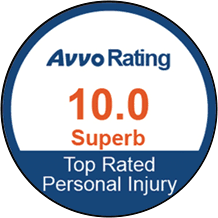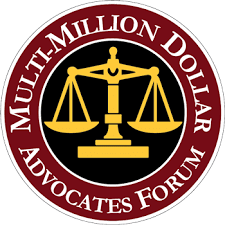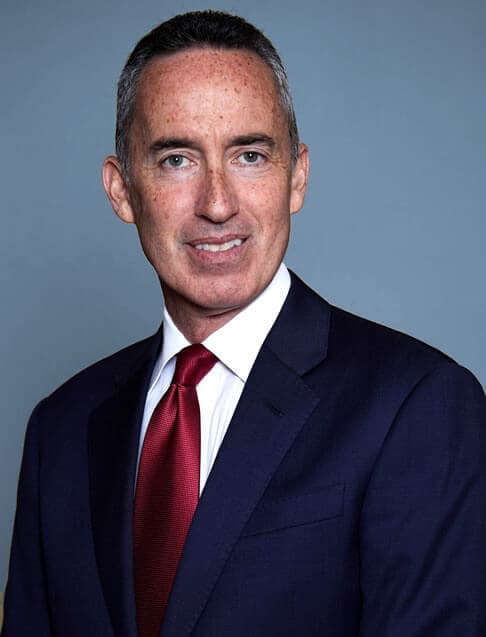Every time a motorcyclist heads out in New York City or its surrounding counties, they take a risk far greater than drivers in enclosed vehicles. While cars and trucks offer layers of protection, a motorcycle leaves you exposed to the full force of any collision.
When the unthinkable happens, and you're left injured, facing medical bills, and wondering what comes next, a New York motorcycle accident lawyer can help you pursue the justice and compensation you deserve.
Schedule a Free Case Evaluation
Table of Contents
- Why Are Motorcycle Accidents in NYC So Dangerous?
- New York Motorcycle Laws Every Rider Should Know
- Common Injuries in Motorcycle Accidents
- What Compensation Can I Recover After a Motorcycle Accident?
- What to Do While Healing from a Motorcycle Accident
- Why Experience on Two Wheels—and in the Courtroom—Matters
- Legal Deadlines and Timelines in New York
- What an Attorney Does for You
- Queller Fisher is the Right Advocate After a Motorcycle Crash
- Areas We Serve
- Frequently Asked Questions
- Get the Support You Need When it Counts Most
Why Are Motorcycle Accidents in NYC So Dangerous?

Motorcycle riders in New York are some of the most vulnerable individuals on the road. Between congested city streets, aggressive drivers, and often poorly maintained roads, bikers are constantly on alert.
Unfortunately, even the most skilled rider can't avoid every hazard. When a crash happens, the consequences are almost always severe. Unlike passengers in cars, motorcyclists have no steel frame, airbags, or seatbelts to protect them.
In a collision, your body takes the full force of the crash. This often results in serious injuries like traumatic brain injuries (TBI), broken bones, road rash, spinal damage, and internal bleeding.
In many cases, motorcycle accidents are caused by:
- Drivers failing to see a motorcyclist before turning or changing lanes
- Drivers opening car doors into traffic (dooring)
- Speeding or reckless driving
- Driving under the influence of alcohol or drugs
- Hazardous road conditions, such as potholes or debris
Injuries from motorcycle crashes often lead to extended hospital stays, time off work, and long-term therapy. These physical and emotional burdens are hard enough. You shouldn't have to shoulder the financial burden, too.
New York Motorcycle Laws Every Rider Should Know
New York law sets specific requirements and responsibilities for motorcyclists. Understanding these rules can help protect your rights after an accident.
Helmet and Eye Protection
All riders and passengers in New York are required to wear DOT-approved helmets. Eye protection, such as a face shield or goggles, is also mandatory unless the bike has a windscreen.
Insurance Requirements
Unlike drivers of enclosed cars, motorcyclists in New York are not covered by no-fault insurance for their own injuries. This means your motorcycle policy won't automatically pay for your medical bills and lost wages.
To recover compensation, you must file a claim against the at-fault party. However, you still must prove you sustained a serious injury as defined by New York law to recover damages for pain and suffering from the driver of the other vehicle.
Lane Splitting
Lane splitting (riding between lanes of traffic) is illegal in New York. Even if a motorcyclist is hit while lane-splitting, the insurance company may try to argue that the rider was at fault. An experienced attorney can counter these tactics with facts and strong advocacy.
Common Injuries in Motorcycle Accidents
Motorcycle crashes often cause injuries that require extensive recovery time. Some of the most common include:
- Traumatic Brain Injuries (TBI): Even with a helmet, the force of a crash can cause life-altering brain trauma.
- Spinal Cord Injuries: These can result in partial or total paralysis and often require lifelong care.
- Fractures and Broken Bones: Arms, legs, ribs, and hips are frequently broken in motorcycle collisions.
- Road Rash: Severe skin abrasions that may require skin grafts and leave permanent scarring.
- Internal Injuries: Damage to internal organs can be life-threatening and is often not immediately visible.
Every injury deserves immediate medical attention and a legal strategy tailored to your future needs.
What Compensation Can I Recover After a Motorcycle Accident?
If someone else’s actions caused your accident, you may be entitled to compensation for:

- Medical bills (current and future)
- Physical therapy and rehabilitation
- Lost wages and reduced earning capacity
- Pain and suffering
- Emotional distress
- Disfigurement or disability
- Motorcycle repair or replacement
Calculating these damages isn't just about adding up bills. It's about making sure your future is secure. That’s where a skilled legal team comes in.
What to Do While Healing from a Motorcycle Accident
In the aftermath of a motorcycle accident, your primary focus should be recovery. However, taking certain steps early on can strengthen your legal claim:
- Get Medical Attention Immediately: Your health comes first. Even if you feel okay, get checked. Many serious injuries don’t show symptoms right away.
- Document Everything: Save medical records, bills, photos of the crash scene and your injuries, and any correspondence with insurance companies.
- Avoid Speaking with Insurance Adjusters Alone: Their job is to minimize payouts. Stick to the facts and don’t speculate.
- Follow All Medical Advice: Attend all appointments and follow through with your care plan. This shows you are serious about recovery.
- Speak to a Lawyer: The sooner you consult an attorney, the better positioned you are to protect your rights.
Why Experience on Two Wheels—and in the Courtroom—Matters
Choosing a New York motorcycle accident lawyer who understands both the legal system and the unique risks motorcyclists face is vital. You're not just another personal injury case. Your lawyer should understand how motorcycles handle, why certain crashes happen, and what it means to face bias against bikers in the legal system.
Motorcyclists are often wrongly blamed for accidents. Insurance companies love to push the stereotype of the reckless biker. You need someone who knows how to push back.
Someone who knows what’s fair and won’t back down when facing powerful insurers or defense attorneys.
Legal Deadlines and Timelines in New York
In New York, the statute of limitations for filing a personal injury lawsuit is three years from the date of the accident. However, some cases (such as those involving government vehicles) may require a Notice of Claim within 90 days.
Waiting too long to act can weaken your case and limit your options. Starting early gives your legal team time to investigate thoroughly, preserve evidence, and build a compelling case.
What an Attorney Does for You
Having legal representation means more than just filing paperwork. A motorcycle accident lawyer can:

- Investigate the cause of your crash and gather evidence
- Reconstruct accident scenes with expert consultants when needed
- Interview witnesses and police officers
- Identify all liable parties (including third parties such as municipalities or product manufacturers)
- Handle all communication with insurance companies
- Calculate the full value of your claim
- Represent you in negotiations and court if needed
You deserve someone who can guide you toward justice with confidence and clarity.
Queller Fisher is the Right Advocate After a Motorcycle Crash
Proven Strength. Genuine Support. Tireless Effort.
When you're searching for someone to stand up for you after a life-changing accident, you want more than just credentials. You want grit. You want a team that listens, understands what you’re going through, and has the skill and determination to win.
Our strengths:
- A track record of high-value settlements and verdicts
- Experience specifically with motorcycle accident claims
- Knowledge of New York laws and local court systems
- Real testimonials from clients who’ve been through what you’re facing
- Direct attorney access—not just case managers or assistants
You need someone who will stand beside you with the strength of a seasoned trial lawyer and the personal care of someone who truly gives a damn.
Areas We Serve
Motorcycle crashes can happen anywhere in the region. We assist injured riders in:
- Staten Island
- Westchester County
- Nassau County
- Suffolk County
Wherever the crash happened, we’re ready to fight for you.
Frequently Asked Questions
1. Can I still file a claim if I wasn’t wearing a helmet?
Yes, you may still be eligible for compensation, even if you weren’t wearing a helmet. However, the insurance company may argue that your injuries were made worse by not wearing one.
This could affect the amount you recover. A lawyer can help push back on these arguments and make sure the focus stays on the other party’s negligence.
2. What if the other driver left the scene of the crash?
If the at-fault driver fled, you may still have options. Your uninsured motorist (UM) coverage may apply. In hit-and-run cases, it’s especially important to report the incident to the police immediately and speak with a lawyer to preserve your rights and identify all available coverage.
3. Can I sue if poor road conditions caused the crash?
Yes, if dangerous road conditions—like a pothole, uneven pavement, or lack of signage—contributed to your crash, a city or state agency may be responsible. Due to shorter legal deadlines, these claims require fast action. An attorney can help investigate and file the proper notices within the required timeframe.
4. Will my motorcycle accident case go to court?
Most motorcycle accident claims are settled without going to trial. However, your attorney may recommend filing a lawsuit if the insurance company refuses to offer a fair amount. Preparing a strong case from day one puts you in the best position, whether at the negotiating table or in the courtroom.
5. What if I was partially at fault for the accident?
New York follows a pure comparative negligence rule, which means you can still recover damages even if you were partly at fault. Your percentage of fault will reduce your compensation. Consult an attorney about types of fault and how fault is determined in NY.
6. How long will my motorcycle accident case take?
Each case is different. Some settle in a few months, while others—especially those involving serious injuries or contested liability—may take a year or more. A lawyer can give you a more accurate timeline after reviewing your case and the parties involved.
7. Can family members file a claim if the rider died in the crash?
Yes. If a loved one was killed in a motorcycle accident, certain family members may be able to file a wrongful death claim. This can provide compensation for funeral expenses, lost income, and the emotional loss of companionship and support.
8. Should I speak to the insurance company after a motorcycle accident?
It’s generally best to avoid stating the at-fault driver’s insurance company without legal guidance.
Insurers may try to get you to downplay your injuries or accept blame. Instead, refer them to your attorney, who can protect your rights and handle communications on your behalf.
9. What documents should I gather after a motorcycle crash?
You should collect the police report, medical records, photos of your injuries and the accident scene, repair estimates or invoices for your motorcycle, witness contact information, and any insurance correspondence. These documents help build a strong and well-supported claim.
10. Are motorcycle passengers allowed to file injury claims?
Yes. Suppose you were a passenger on a motorcycle and got hurt. In that case, you have the right to file a personal injury claim, whether the at-fault party was the driver of another vehicle or the motorcycle you were riding. Passengers are rarely at fault, so you may have a strong case.
11. How much does it cost to hire a motorcycle accident lawyer?
Our firm, like most personal injury law firms, works on a contingency fee basis. This means you pay us no upfront fees.
We only get paid a percentage of the compensation we recover for you. If we don't win your case, you owe us nothing for our legal services. This arrangement allows you to pursue justice without financial risk.
12. What is the main difference between a motorcycle and a car accident claim in New York?
The primary difference is the application of New York's No-Fault insurance law.
After a car accident, your own auto insurance provides initial coverage for medical bills and lost wages, regardless of fault. Motorcyclists are excluded from this No-Fault coverage.
Therefore, a motorcyclist must seek all compensation, including for medical expenses, directly from the at-fault party's insurance or through a lawsuit.
13. The other driver's insurance adjuster seems friendly and wants a recorded statement. Should I give one?
You should not give a recorded statement to the other party's insurance company without first consulting your attorney. Insurance adjusters are trained to ask questions that may lead you to unintentionally hurt your own claim or admit partial fault. Politely decline and tell them your lawyer will be in contact.
14. What are the most common biases motorcyclists face in a legal case?
Motorcyclists are often unfairly stereotyped as reckless risk-takers. Insurance companies and defense attorneys may try to exploit this bias by arguing that you were speeding, lane splitting, or otherwise driving aggressively, even with no evidence.
An experienced lawyer anticipates these tactics and uses evidence like police reports, witness testimony, and accident reconstruction to prove the other party was negligent.
Get the Support You Need When it Counts Most

The aftermath of a motorcycle crash can feel like your whole life has changed in an instant. Medical bills, phone calls from insurance companies, and long, painful recovery periods are hard enough.
You deserve to have someone on your side who can shoulder the legal burden so you can focus on healing. Let the team at Queller Fisher show you what strong, capable legal representation looks like.
We’ve helped countless injured riders and their families throughout New York recover the compensation they need to rebuild.
Call our New York office at (212) 406-1700 today for a free, no-obligation consultation. You don't have to wait to get clarity about your next steps.
Queller, Fisher, Washor, Fuchs & Kool - New York Office
233 Broadway #1800,
New York, NY 10279
Ph: (212) 406-1700